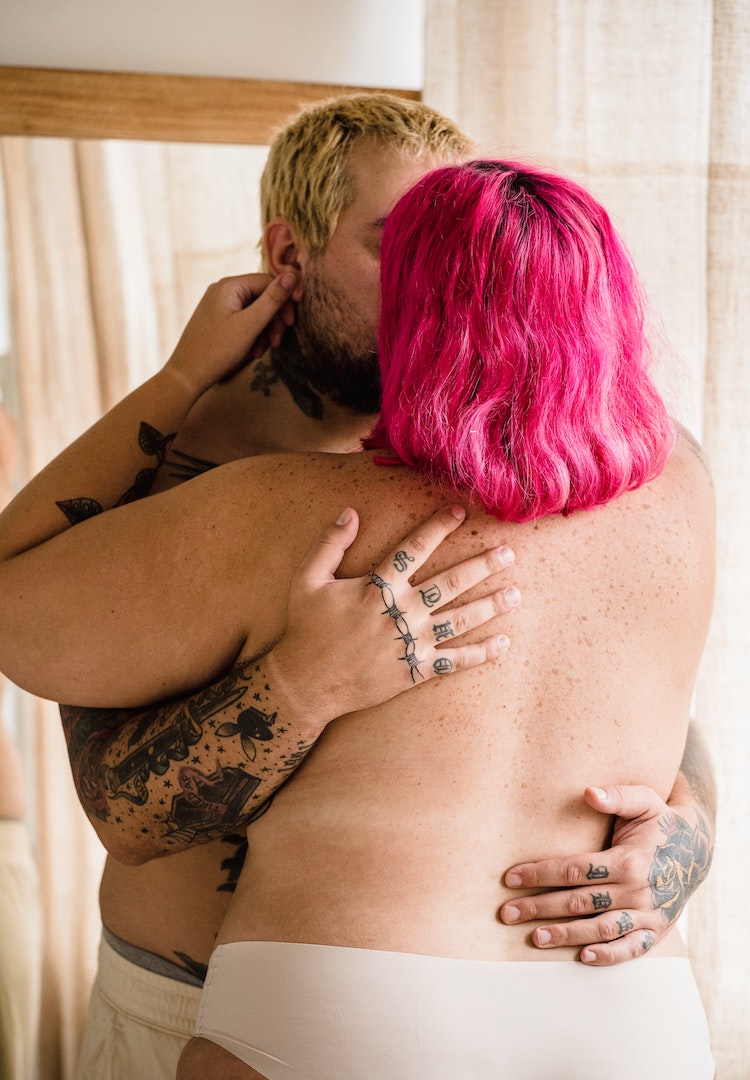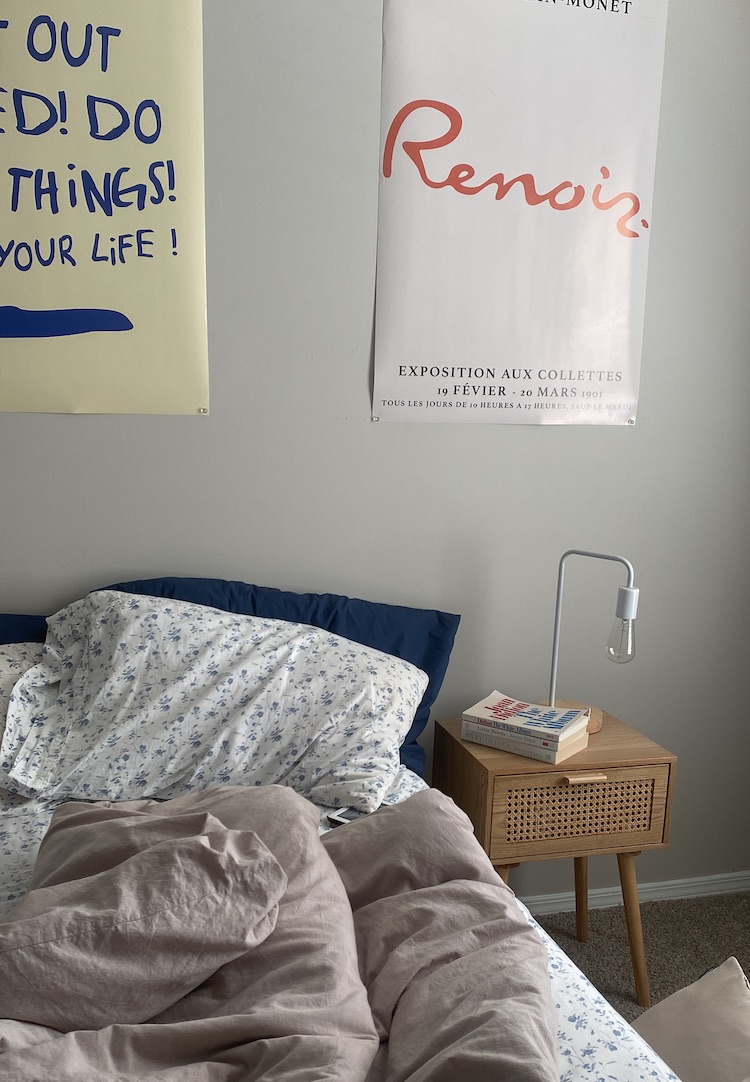Ask A Sex Therapist: I don’t want to have sex with my partner anymore
WORDS BY LAURA MIANO
FJ’s sex columnist answers your burning questions.
Laura Miano is a sex and relationship writer and sex therapist based in Melbourne. Her mission is to help those with sexual concerns as well as support individuals who might like to enhance their sex lives beyond cultural norms. To learn more about her, follow @lauramianosexology.
“I have a low libido and don’t want to have sex with my boyfriend anymore. Can you help?” – Girl Seeking Libido
Hey Girl Seeking Libido,
Sorry to hear that – libidos are a tricky one! In our modern world, in fact, a low desire for sex is the most common sexual concern reported by women so you’re not alone. Even more perplexingly, it’s not unusual to hear that a woman isn’t desiring sex but still enjoys it when she eventually has it – could we be any more confusing? It’s not all bad though, and the good news is I’ve got a few tips that might be useful to you. But before I get into that, let me start with a bit of sex education on sexual desire.
When relationships begin, you experience what is called spontaneous desire – sudden impulses to have sex. As relationships develop, you shift to responsive desire – when past sexual experiences with your partner, your intellectual and emotional connection to them and a bunch of other things determine your willingness for sex. You can’t expect to have the same type of desire for them four years down the track as you did the first year. But, both forms of sexual desire can be influenced by heaps of factors.
For more sex advice, head to our Life section.
From stress, relationship problems, performance anxiety, mental health issues, fatigue, poor diet, sexual inexperience, sex-negative cultural influences, and medications – the list goes on, but I won’t bore you with all the technical stuff. The truth is, overcoming a low libido isn’t always about reversing what might have caused it in the first place. Instead, there are a few simple habits in your relationship that you can try changing as well as a bit of self-exploration to get you back in touch with your sense of sexuality.
First of all, I want you to stop being so hard on yourself. When sex dwindles in a relationship, we tend to blame the low-desire partner, but this kind of thinking will leave you feeling isolated. I’m making assumptions here but I’m guessing that your partner thinks your low desire is the issue and sees no reason for himself to change. Meanwhile, you’re feeling guilt and self-blame but also blaming your partner for being insensitive.
How are we meant to overcome an issue in this kind of environment? This is not a vibe! In sex therapy, we consider mix-matched libidos a couple problem. This way, you can tackle the issue as a team – two adults simply finding a common ground that meets both of your basic needs. It’s a gorgeous little thing we call compromise, and it’s super important both of you are on the same page with this.
Imagine sex is on a continuum. When couples have mix-matched desires they tend to become polarised and sit on the extreme ends of that line and most don’t want to be there. Your boyfriend doesn’t only want dick-in pussy sex and nothing else, but he has (most likely) found himself focusing on that as the issue. And I’m sure you don’t want to keep avoiding kisses, cuddles or a bit of fondling, but you do because you think he’ll expect sex. You’re both sitting on opposite extremes and this is where many troubles stem from.
How to get out of this? You need to start reintroducing sensuality into your relationship. Note that I said sensuality, not sex! When you’re on the bed/couch watching a series, have a two-minute hot pash between episodes; when you wake up next to each other move his hand onto your ass; when either of you goes into the kitchen while the other is cooking, go up behind and give a reverse hug, maybe including a cheeky breast or dick-through-the-pants grab if either of you is feeling it.
When this kind of sensuality becomes commonplace in your relationship, you can start to up the ante. Perhaps a full body massage with or without a happy ending, mutual masturbation where you watch each other make yourselves cum, or offering to kiss, caress or cuddle your partner while he masturbates (or vice versa). Get out of the habit of saying ‘no’ to sex, and instead say ‘no, but we can try… ’. This will take time to get used to, but with each new introduction of sensuality, you’ll find yourselves creeping off that hard extreme of no sex/only sex and instead frolicking your cute selves all along that spectrum.
The other very important issue to discuss here is you and the relationship you have with your pussy. It’s very hard to give sex of any kind to someone else when we don’t know how to give it to ourselves. When we incorporate self-pleasure and exploration into our life we learn more about what we like, and we can feel more entitled to sex and pleasure, more empowered sexually, and more confident during partnered sex. All of these are a big boost to the sex drive. One activity I love giving clients for homework is to spend some time looking, touching and exploring their vulvas in front of a mirror. It might be daunting but trust me, she’s beautiful!
Another bit of solo work you can do is to think about your sexual accelerators and brakes. That is, what turns your sexual system on and off? Sounds pretty simple but if you map them out, you won’t feel down on yourself when you’ve had a crap night’s sleep, been super stressed at work and then don’t want sex before bed. Conversely, when you’ve spent your Saturday doing hobbies and hanging in the sun all day, sex might be far more likely and after mapping out you’re As and Bs, you’ll know why.
Honestly, I could ramble forever on this topic, but I think you’ve got enough info to give your libido and your ~couples~ issue a good crack! Moving past a mix-matched libido in a relationship takes work but it’s absolutely possible. With good communication and honest devotion from both of you, you can move past this slump and get back into a good place (i.e. each other’s pants).
This article was originally published on April 21, 2022.
See the other instalments in our Ask A Sex Therapist series here.










